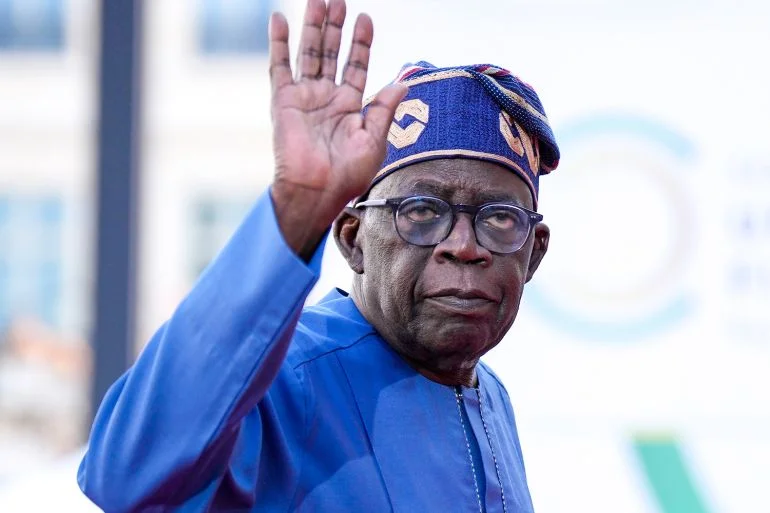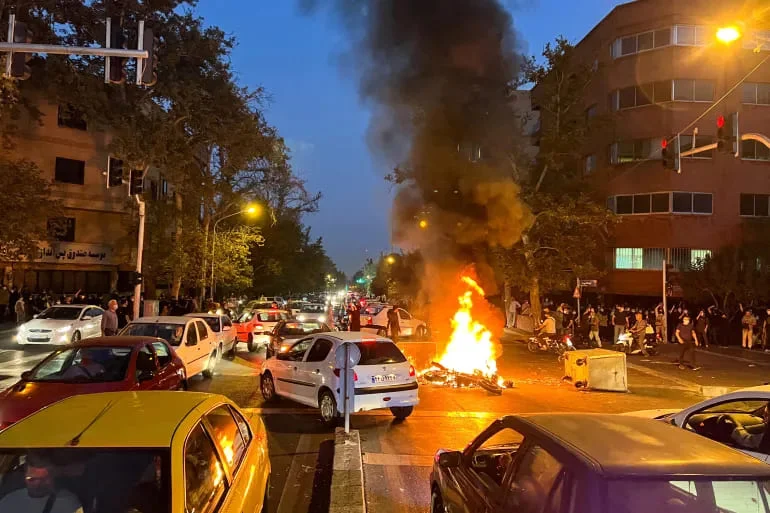A Nigerian court has been petitioned to prevent the inauguration of the country’s next president and extend the current president’s tenure, according to court documents obtained on Friday. The request was made by five Nigerian citizens to the Federal High Court in Abuja, arguing that President-elect Bola Tinubu was unlawfully declared the winner of the February 25 presidential election, thus should not be sworn into office on May 29.
This petition is one of several challenges to the ruling party’s victory and has raised alarms in the West African nation about the potential for a constitutional crisis if President Muhammadu Buhari were to remain in office until the court resolves the case.
Chuks Nwachuku, the attorney representing the plaintiffs, stated that Tinubu’s declaration as president-elect was unconstitutional because he failed to secure at least 25% of the votes cast in Abuja, Nigeria’s capital. According to the Nigerian Constitution, to be elected president, a candidate must not only have the highest overall vote count but also must receive at least one-quarter of the votes in each of at least two-thirds of Nigeria’s 36 states, including Abuja.
The interpretation of this constitutional requirement has sparked significant debate within Nigeria.
“There can be no swearing-in of anyone who has not satisfied the provisions of the constitution. We are asking for a declaration that the president remains in office until the issue of succession is sorted out,” Nwachuku told The Associated Press.
The two main opposition parties in Nigeria had previously contested the All Progressives Congress’s presidential victory, alleging that the election results were manipulated. While the opposition’s legal challenge was not anticipated to delay Tinubu’s inauguration, analysts have cautioned that extending Buhari’s term could provoke a crisis in a country already marked by a troubled history of military rule and electoral violence.
“The petition is a recipe for crisis. While all previous elections have faced disputes, never has there been a push to halt the constitutional process of inaugurating the winner. This is indeed very concerning,” remarked Idayat Hassan, director of the Center for Democracy and Development, a research and advocacy organization based in Abuja.
On Monday, a Nigerian court commenced hearings on separate lawsuits filed by opposition parties contesting the victory of the ruling party in the country’s presidential election. The presidential tribunal, located at the Court of Appeal in Abuja, heard opening statements from lawyers representing opposition parties challenging the outcome of the February election won by Bola Tinubu of the All Progressives Congress (APC).
As the hearings began, armed security personnel blocked major access roads, preventing several journalists and lawyers from entering the court. Meanwhile, a small group of protesters waved Nigerian flags and held placards alleging that the electoral process had significant flaws.
“Why I am demonstrating is because of the anger and pain I have as a Nigerian who is not allowed to express and enjoy the resources of the land,” stated protester James Mike, who accused the Nigerian political elite of misappropriating the country’s wealth derived from its abundant mineral and crude oil resources.
In a televised announcement, Nigeria’s election commission had declared Tinubu the winner after he received 37% of the total votes. However, the two main opposition candidates have rejected these results, questioning Tinubu’s qualifications and alleging that the electoral outcomes from the country’s 177,000 polling stations were manipulated.
Analysts and observers noted that while the voting on February 25 was generally an improvement compared to previous elections, delays in uploading results may have created opportunities for tampering.
In their separate petitions, Atiku Abubakar, the second-place candidate from the Peoples Democratic Party (PDP), and Peter Obi, the third-place candidate from the Labour Party, argued that Nigeria’s electoral commission violated legal provisions when announcing the election results. Obi claimed to have evidence showing that he received the majority of votes, while Abubakar sought to disqualify Tinubu, alleging that he holds a Guinean passport, thus rendering him ineligible for the presidential contest under the Nigerian Constitution.
“We are telling the court that he (Tinubu) is not qualified and that, contrary to the law, he did not inform the election commission about his citizenship in another country,” stated Paul Ibe, a spokesman for Abubakar.
Under Nigerian law, an election can only be invalidated if it can be proven that the national electoral body failed to adhere to legal protocols in a manner that could have altered the results. Historically, the Supreme Court of Nigeria has never overturned a presidential election result, although analysts suggest that this year’s election is unique due to the extensive use of technology in the electoral process.
The main opposition party has made unsubstantiated claims that the ruling party is attempting to interfere with the judicial process, heightening tensions as the nation awaits the court’s judgment and prepares for Tinubu’s inauguration as president. The court proceedings are expected to be lengthy, potentially extending beyond May 29, when Tinubu is scheduled to assume office, succeeding incumbent President Muhammadu Buhari.























